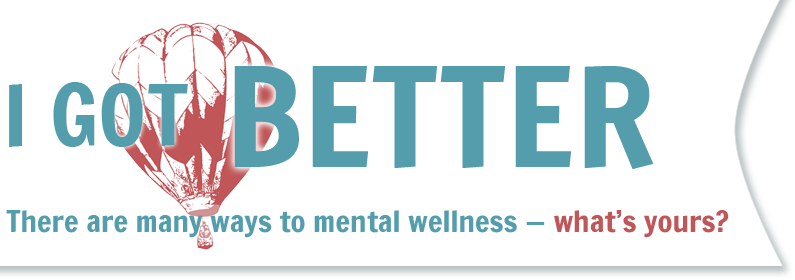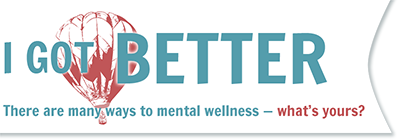Broaden Your World
Melody Riefer; Tucket, GA

During your mental health care, have you often felt hopeful about your chance of getting better?
Yes, due to encouragement of friends, family and [my] therapist. Not [because of] medical staff.
During your mental health care, have you often felt hopeless about your chance of getting better?
Yes, with inconsistent support from Case Management and employment support. They were reluctant to ‘allow me’ to take risks needed for recovery.
Has a mental health provider ever told you that you could reach a personal goal despite your psychiatric diagnosis (for example, education, career, independent housing, relationship, children, etc.)?
Yes, returning to school and [my] profession.
Has a mental health provider ever told you that you could not reach a personal goal because of your psychiatric diagnosis (for example, education, career, independent housing, relationship, children, etc.)?
Yes, the MD and county staff encouraged me to stay in disability, avoid stressors, and take more medications.
If you overcame hopelessness that you could get better from a mental health or emotional problem, was there a turning point for you?
Two keys things: A friend asked me to live in their home and provided daily support at a point when I was homeless. These friends created a safe place to live so I could do personal therapy and begin healing. Another friend got me a job interview and essentially pulled in a personal favor to get me a job that jump-started my career. This ultimately lead me to the consumer/survivor/ex-patient movement.
Tell us what recovery means to you. How would you define recovery from mental health or emotional problems in your own words?
Whole health, and whole life recovery. Being in community that is not defined by illness or deficit. Achieving autonomy, I think, is the biggest thing. It’s okay to need others, to get support, to take medications, etc., but ‘I’ get to decide who, what, when, and why. That’s recovery.
If you could send a brief message to someone receiving mental health care today who is feeling hopeless about getting better, what would you say?
Broaden your world. Don’t get stuck in the system. If the conversation is focused in illness you’ll get more ill. If the conversation is focused on wellness you’ll get well. It does get better.
Can you give examples showing you have gotten better from a mental or emotional problem, such as how you are doing well or accomplishing goals you have chosen?
I have a fabulous job that gives back to my brothers and sisters stuck in the mental health system. Our work is focused on being disruptive innovators. We are trying to change the dialog and get the focus on wellness.


